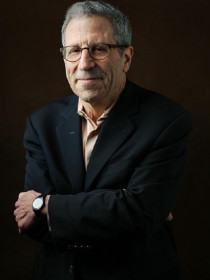
Eric Maskin
Connect with Eric
About Eric
Maskin is the Adams University Professor and Professor of Economics and Mathematics at Harvard. Maskin has made contributions to game theory, contract theory, social choice theory, political economy, and other areas of economics. Maskin received his A.B. and Ph.D from Harvard and was a postdoctoral fellow at Jesus College, Cambridge University. Maskin was a faculty member at MIT from 1977-1984, Harvard from 1985-2000, and the Institute for Advanced Study from 2000-2011. Maskin rejoined the Harvard faculty in 2012. In 2007, Maskin was awarded the Nobel Memorial Prize in Economics (with L. Hurwicz and R. Myerson) for laying the foundations of mechanism design theory.
In the News
Publications
Develops a model for understanding "pork-barrel politics," where government officials spend public dollars on targeted interest groups to improve their reelection chances.
Examines financing in the fight against malaria by describing malaria control plans in Africa since 2000 and offering a model of the economics of malaria and how heath aid can help.
Defines the field of mechanism design, a field of economics and game theory that takes an engineering approach for describing economic systems. Then, the article describes a few concrete examples of mechanism design.
Describes why cooperative game theory has not advanced in teaching nor practice as noncooperative game theory. Describes steps that could be taken to change this.
Notes that prevalent economic theories predict that globalization should reduce inequality in emerging economies, however, this has not been the case. Forwards an alternative theory, which is a better fit for recent history.